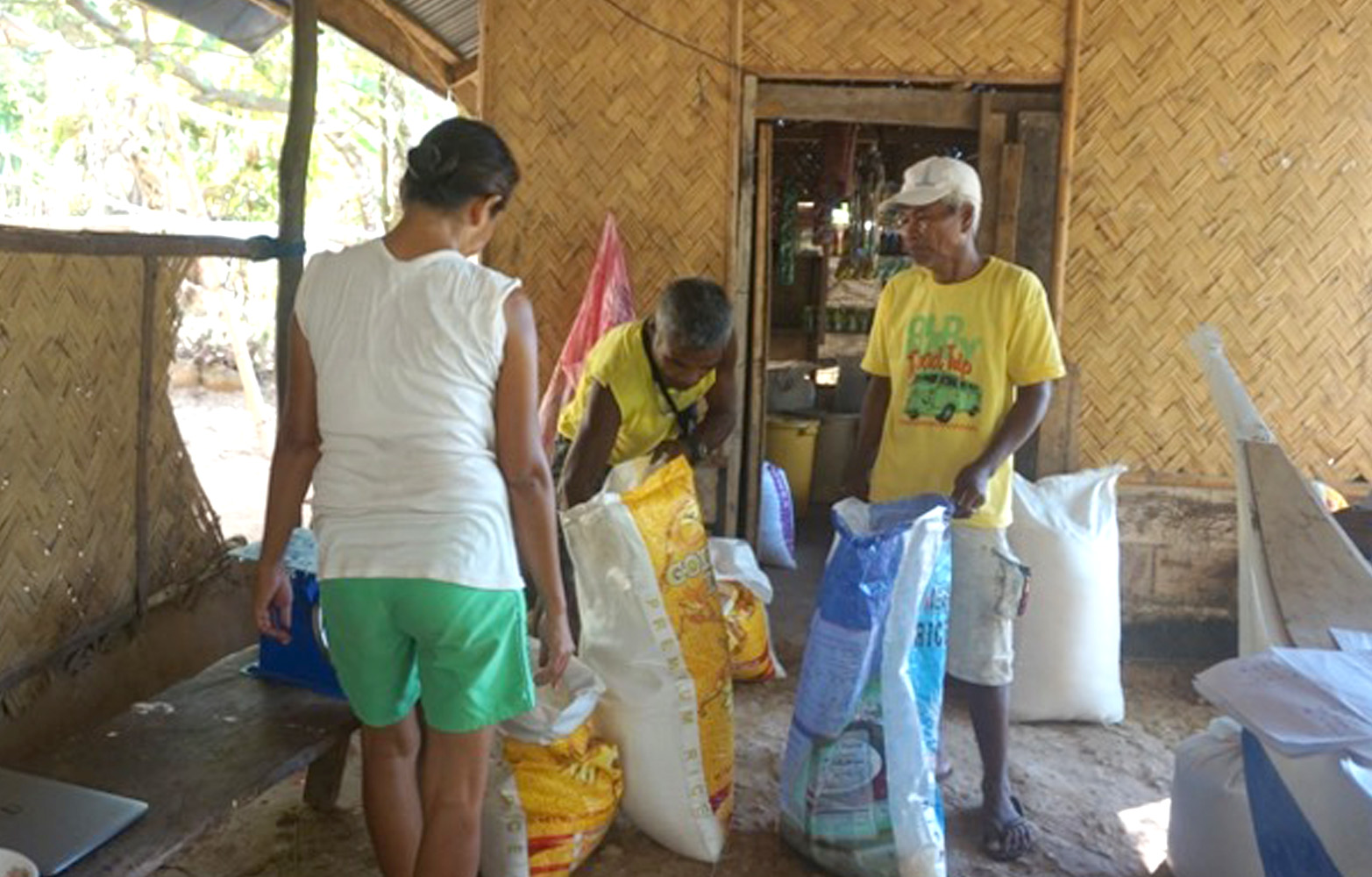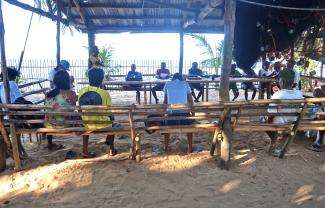A meeting amongst the manigerekelen, the clan heads of the Calamian Tagbanwa indigenous community of Pali, in Coron, Palawan, was called by the oldest, Apung Dakulu Pablo. Such is the custom of the Tagbanwa: to talk and decide on what is best to do about matters that concern the community. In this case, it was about an emergency relief assistance needed because of the enforced community quarantine due to the threat of the spread of COVID-19. The assistance came from the LBC Foundation, facilitated by The Samdhana Institute.
While most relief assistance from government and other groups automatically distribute equal share of goods among the households, the manigerekelen asserted a different track. It is the custom of the Tagbanwa to share benefits equitably, not necessarily equally, among the members of the clan. The practice is called pinulak. Pinulak is a basic measure of a cup usually used for rice. Allocation is determined not by household, but by the size of the family. A family with 9 members definitely gets a larger share than a family with 3 members.

Data sources usually show information by household. Hence, the manigerekelen made listings of members of each clan. This was a good exercise giving value to the 19 clan groupings which is the backbone of the indigenous political structure of the Tagbanwas. The listing not only serves the current emergency relief distribution but also the Ancestral Domain Sustainable Development and Protection Plan, which the community is crafting but was suspended because of the quarantine.

Relief distribution on 12 May 2020 was made through the manigerekelen and each manigerekelen was responsible for distribution to the families belonging to his clan. The smallest clan is composed of 5 families while the largest is composed of 43 families. Total number of families that benefitted was 303. ###




